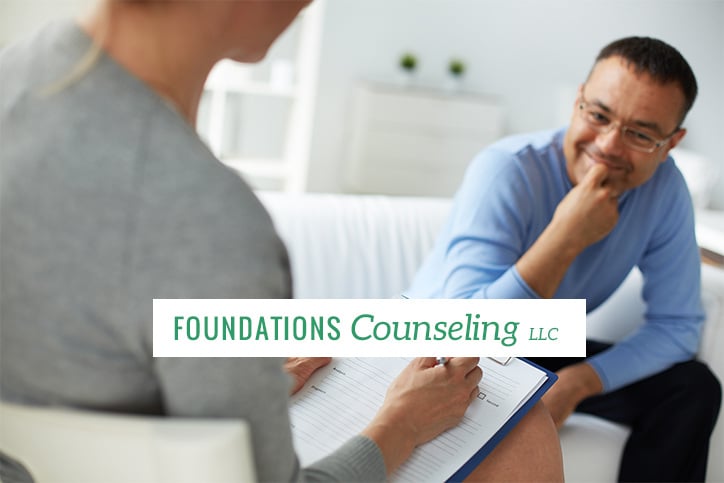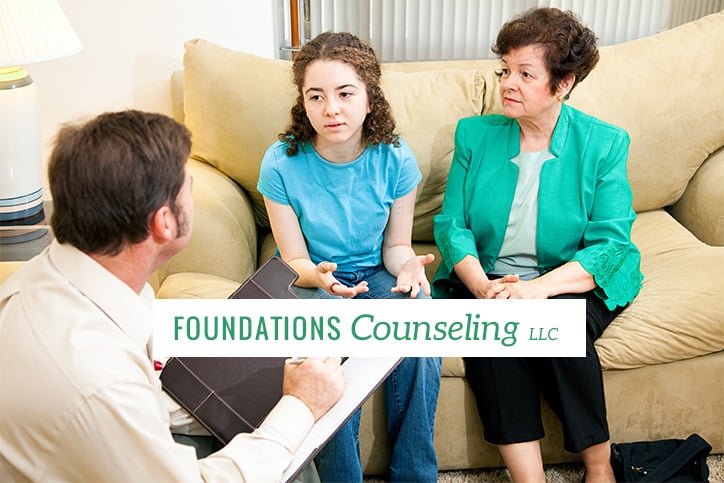Strengthen Bonds, Find Emotional Peace
Experience the transformative power of Emotionally Focused Therapy (EFT) at Foundations, where we prioritize your emotional well-being with faster, high-quality care. Our emotionally focused therapy (EFT) service stands out with same-day to 48-hour appointment settings, ensuring you get the support you need without delay. Our counseling professionals are better trained, providing expert guidance to help you navigate your emotional landscape and improve your relationships.
We believe in taking great care of our counselors so they can take great care of you. By fostering a supportive and healthy work environment for our therapists, we ensure they are at their best to help you heal and grow. Our commitment to a no-nonsense approach means our counselors are here to offer genuine, advanced support without any pretense. They are dedicated to helping you achieve lasting change and emotional resilience.
Accountability is at the core of our emotionally focused therapy (EFT) service. We strive to be the best we can be for you, continually improving our practices to provide the highest quality care. Our goal is to help you build secure, lasting bonds and find emotional peace through EFT.
Ready to transform your relationships and emotional health with emotionally focused therapy (EFT)? Contact us today to schedule your consultation and take the first step towards a more fulfilling and connected life. Our team is here to support you every step of the way.
book your free consultation
Rebuilding Emotional Bonds for Lasting Love
Emotionally Focused Therapy helps couples break negative cycles and build secure, lasting emotional connections by deepening their understanding of each other’s needs.
GUARANTEED COUNSELOR MATCH
Guaranteed counselor matching to meet your needs. Experience personalized therapy that’s right for you. Start your journey with a therapist you can trust.
Learn MoreDo You Feel...
If you recognize these symptoms in yourself or someone you know, reaching out to the experts at Foundations can be a convenient and effective way to start addressing these challenges. The team at Foundations is ready to guide you through your journey toward healing and personal growth. Taking that first step to seek help can lead to significant positive changes in your life.
Frequent Arguments
Constantly fighting with a partner or loved one can signal unresolved emotional issues and negative interaction patterns that EFT can address.
Emotional Disconnection
Feeling distant or emotionally disconnected from a partner, unable to share thoughts and feelings, can be a sign that EFT is needed to rebuild emotional bonds.
Trust Issues
Difficulty trusting a partner due to past betrayals or insecurities may require the healing approach of EFT to reestablish trust.
Fear of Abandonment
Experiencing intense fear of being abandoned or left alone can indicate attachment insecurities that EFT can help to alleviate.
Unresolved Conflicts
Lingering conflicts that never seem to get resolved can benefit from the structured approach of EFT to address and heal underlying emotional wounds.
Lack of Intimacy
A decline in physical or emotional intimacy with a partner might suggest deeper emotional issues that EFT can help to explore and resolve.
Jealousy and Insecurity
Frequent feelings of jealousy or insecurity in a relationship can be addressed through EFT by understanding and changing negative emotional responses.
Communication Breakdown
Struggling to communicate effectively with a partner or loved one can be a sign that EFT is needed to improve emotional expression and understanding.
Chronic Relationship Stress
Persistent stress or anxiety about the state of a relationship can indicate underlying emotional issues that EFT can help to uncover and heal.
Answers to Common Questions
What is Emotionally Focused Therapy (EFT)?
Who can benefit from EFT?
How long does EFT take to show results?
What are the costs associated with counseling or therapy sessions at Foundations?
Does Foundations accept Insurance?
What if I need to reschedule my counseling session?
Are you available in the evenings or on weekends?
What makes EFT different from other therapies?
Is EFT effective?
What can I expect in an EFT session?
Can EFT help with issues other than romantic relationships?
What if my partner is hesitant to try EFT?
How does EFT address trust issues?
What should I do to prepare for my first EFT session?


Colorado Licensed Counselors
Appointment Scheduling Within 48 Hours
Counselor Match Concierge
Expert In-house Counselor Training
All Counselors Are Employees
In-person Or Online
Local Company & Ownership
Community Involvement
Pay Per Session
First Visit Free
Find the Right Match









We understand that the journey to emotional well-being begins with connecting you to the right counselor. That's why we proudly offer our unique Counselor Match Guarantee. We don't just pair you with any counselor; we meticulously match you with someone who aligns with your specific needs, preferences, and goals for healing and growth. If the initial pairing needs to be corrected, we encourage you to explore our diverse and experienced team until you find the perfect fit.
Your comfort and progress are paramount, so we ensure you always have a supportive and confidential environment to pursue your journey of self-discovery and healing. Choose us as your trusted partner in this transformative experience—because your well-being deserves the utmost care.
Begin your journey today and take the first step towards a brighter, more fulfilling tomorrow. Let us guide you to emotional wellness with our dedicated and compassionate counseling services.
Meet Our CounselorsTestimonials
Caitlin M
Kristie
Tony C
Travis G
Winter
Alexis G
Gene C
Chloe
Heather H
Phillip J
Bradley M
Charles S
Megan M
Kevin D
M Peterman
George M
Gina G
Miles A
M Burnham
Bethany X
Amanda H
Carli B
Paul B
Growth Beyond Healing

Visit Our Healing Library
Your Hub For Mental Wellness
Explore our Healing Library, a comprehensive resource with valuable content to support your mental health journey. Discover tools, articles, and insights that empower you toward personal growth and emotional resilience.

FIRST CONSULTATION is free
Get started on the right path
Take the first step towards healing and personal growth with Foundations. Schedule your free consultation now and discover how our expert therapists can support you in achieving your mental health and wellness goals.

The Perfect Match
Our Counselor Guarantee
Start your journey with a therapist you can trust, and experience personalized therapy that’s right for you. Meet with as many counselors as you need until you find the perfect fit.
























